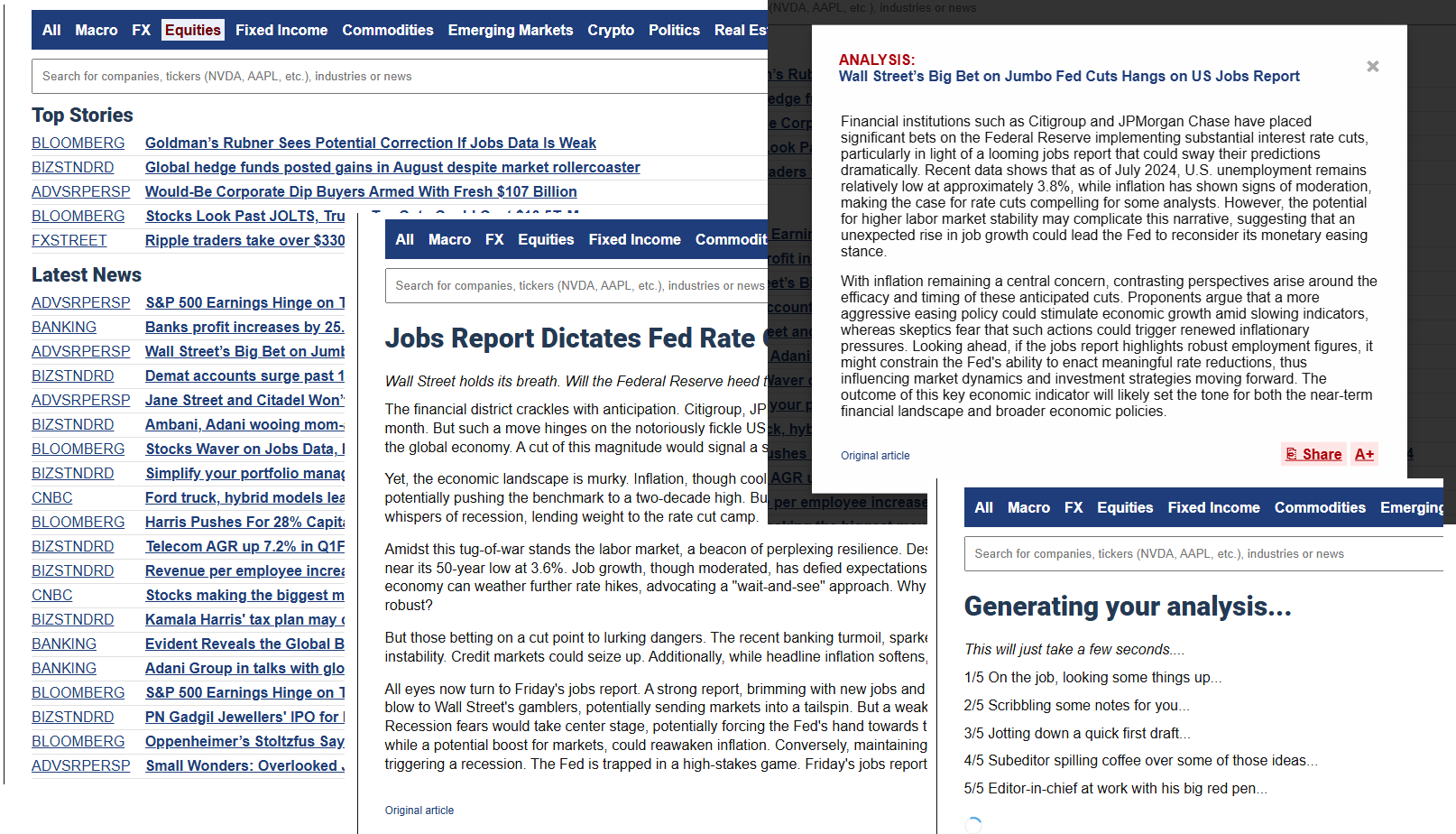Global economic disruptions spark regulatory debates and labor concerns
Recent global financial developments reveal significant disruptions across various sectors, uncovering both economic challenges and opportunities. The call by CAIT Secretary General to the Reserve Bank of India (RBI) to address the alleged nexus between banks and e-commerce firms underscores growing concerns about regulatory oversights and potential monopolistic practices. This demand for banks to halt exclusive discounts on e-commerce platforms indicates potential market competition distortions and limitations on consumer choice. Such scenarios raise critical questions about the role of regulatory bodies in ensuring fair market practices and maintaining the balance of the financial ecosystem. The ongoing debate about the relationship between banks and e-commerce companies reflects broader anxieties about large corporations' influence on economic policies and consumer protection.
Meanwhile, a startling report shows that 70% of employees are unhappy at work, with 54% actively seeking to leave their jobs. This alarming statistic highlights widespread workforce dissatisfaction, particularly significant as the Fintech sector is ranked the happiest, while the Real Estate sector reports the most discontent. This correlation between job satisfaction and industry type necessitates a closer examination of workplace cultures and operational practices, prompting critical discussions on employee engagement, retention strategies, and the long-term sustainability of business models in various industries. The potential for mass resignations could trigger significant labor market disruptions, compelling companies to reassess their human resources strategies and talent management approaches.
On the international front, the UK faces pressure from a think-tank to impose taxes on unhealthy food companies to improve national health and ease the financial burden on the National Health Service (NHS). If implemented, this proposal could save the NHS £18 billion annually by the mid-2030s, reflecting a proactive stance on public health and fiscal responsibility. This initiative aligns economic policies with health outcomes, potentially setting a precedent for other countries grappling with escalating healthcare costs. However, the feasibility of such a tax and its impact on the food industry sparks rigorous debates, balancing public health priorities with economic consequences.
Simultaneously, the political stage in the US has been shaken following an assassination attempt on former President Donald Trump at his West Palm Beach golf course. The incident has heightened media scrutiny and concerns about political violence. The swift response from the Secret Service highlights the ongoing threats to high-profile political figures and the robust measures in place to ensure their safety. Beyond immediate security implications, this event could influence the political climate, potentially affecting electoral dynamics and public perceptions of safety and governance.
In the stock market, UnitedHealth Group continues to experience declines following the Harris-Trump debate. The healthcare giant's shares dropped 0.7%, continuing a 1.6% decline from the previous day. This downturn illustrates investor sentiment and market reactions to political events, underscoring the intrinsic link between politics and market performance. Investors must navigate these fluctuations, balancing short-term volatility with long-term investment strategies. The healthcare sector, particularly sensitive to policy changes, remains a critical indicator of market trends and investor confidence.
Australia's new right-to-disconnect laws have generated tension between employers and employees. This legislation, granting workers the right to log off after hours, symbolizes a significant shift towards work-life balance but faces resistance from business owners. Employers like Glen Day, who runs a chain of restaurants, express concerns over operational impacts and productivity losses. This situation mirrors broader global trends toward enhanced labor rights and evolving work definitions in the digital age. The potential ripple effects on business operations and employee satisfaction demand close attention as other countries consider similar legislative measures.
On the financial front, Malaysian bonds are attracting unhedged bets, driving a rally in the ringgit, Asia’s top-performing currency this year. Investor confidence in Malaysia's economic stability is reflected in the robust demand for its bonds. This surge underscores the country’s appeal as a safe investment haven amid global financial uncertainties. The dynamics of currency performance and investor behavior provide crucial insights into regional economic health and the factors influencing investment decisions.
In another realm, cultural diplomacy took center stage at a recent event showcasing Dunhuang culture at the Chinese Embassy. Such cultural exchanges exemplify soft power strategies employed by nations to foster international goodwill and mutual understanding. This approach enriches bilateral relationships and promotes cultural heritage on a global stage.
Lastly, the personal safety of political figures remains a pressing concern. Democratic vice presidential nominee Tim Walz was unharmed after vehicles in his motorcade crashed. Although the incident was minor, it underscores the unpredictability of campaign trails and the vigilance required for public figure security. It highlights the logistical complexities and risks associated with political campaigns, further exacerbated in today’s polarized political environment.
Collectively, these headlines paint a vivid picture of current global economic and political landscapes, marked by vulnerabilities and strategic responses. The confluence of regulatory actions, workforce dynamics, public health policies, political tensions, market behaviors, labor rights, monetary strategies, cultural diplomacy, and personal safety concerns illustrates the multifaceted nature of contemporary financial news. Each story presents unique implications and potential future trajectories, necessitating a comprehensive and nuanced understanding of the global economic environment.
AI-Powered trading insights: join our email list
Real-Time Market Analysis
Get instant insights on market trends, news impact, and trading opportunities.

